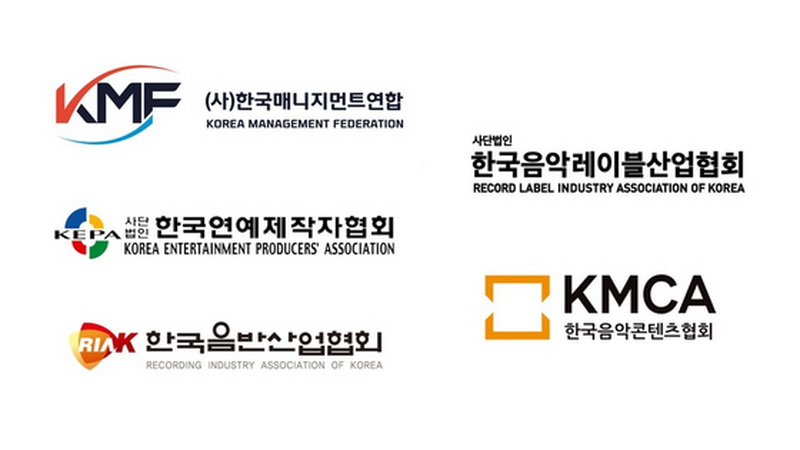While we’re on the topic of the debate about companies debuting underage members, it seems like a relevant time to mention that a bill was recently passed looking to change entertainment law, one that was mentioned last December. It includes a provision about protecting underage artists, and the news story is that five Korean entertainment associations recently came out against that.
——
The bill is essentially an amendment dubbed the ‘Lee Seung Gi Crisis Prevention Act‘, so it obviously includes changes linked to Lee Seung Gi’s contract case with Hook Entertainment and aims to contribute to transparency for artists with regards to finances.
The amendment also includes provisions that require entertainment agencies to provide regular financial statements and payment details to the artists, not just when requested by the artist, as well as prohibiting unfair practices.
The Minister of Culture, Sports, and Tourism may now legally demand attendance, testimony, and document submission from relevant parties for investigations into unfair practices. The amendment also introduces a legal basis for reflecting the results of an investigation into the current state of standard contracts for public culture and arts services in the revision of the standardized contract, among other measures.
Reflecting on this just a little bit makes it somewhat insane that there wasn’t a regular invoicing that was standard already.
Fortunately, that’s not the only thing that’s addressed, as it also works towards improving conditions for minors in the entertainment industry. The amendment implements a lot of common sense things, but points that are probably necessary to have in writing.
Additionally, the bill bans activities that infringe on young celebrities’ right to education, such as school absences or dropouts. It also prohibits actions that pose risks to their health (coercing them to ‘look better’ and/or ‘lose weight,’ etc., abusing them physically and/or verbally in any way).
To help ensure young artists’ rights are protected, the amendment mandates that entertainment businesses appoint a “youth protection officer” responsible for safeguarding their well-being.
Where the dispute comes into play is another section dedicated to the protection of minors, where the amendment further limits the working hours for minors.
Previously, the system was 35 hours per week for artists under 15 and 40 hours per week for those older than 15. The amendment changes things to 25 hours per week and six hours per day for artists under 12, 30 hours per week and seven hours per day for those between 12-15, and 35 hours per week and seven hours per day for those 15 and up.
Effectively, it shaves five hours a week off the limit for minors, and prevents them from working absurdly long shifts.
In response, five Korean music associations have voiced their opposition.
The Korea Entertainment Producer’s Association, Corea Entertainment Management Association, Recording Industry Association of Korea, Record Label Industry Association of Korea and Korea Music Content Association stated that “the revision limits work hours for teenage celebrities by subdividing age limits, which turns a blind eye to reality.” They added the revision is a “bill to hinder the pop culture industry from advancing.”
Their arguments for deleting this part of the amendment effectively amounts to concern trolling for the ambitions of minors and whining about their profits.
“The industry has complied with the law’s limit on working hours for teenagers under the age of 15,” stated the five organizations.
“Additional regulations are unnecessary and will limit the activities of idol groups, which consist of members of various ages. It will weaken the competitiveness of the pop culture industry.”
“It is unfair that [other non-celebrity] students can study until late at night, but teenagers who want to grow into worldwide pop artists are not allowed to do the activities they want,” the statement continues. The five organizations are currently requesting the age limit clause in question to be deleted, as well as a discussion with the industry regarding other clauses.
Needless to say, it’s a bit sad to argue that your industry depends on child labor, and that you have to compare children working to literal school (not to say the studying culture is healthy either, it isn’t). If you can’t be competitive because you aren’t allowed to make a 14-year-old work a physically and mentally intensive workweek that would exhaust adults, then not debuting minors would be the ideal solution.
The complaints themselves are also a bit odd, because the reduced hours don’t seem to change much in practice. Unless they were planning on debuting members under 12, it’s just five hours shaved off the top, and it’s already questionable how that’s calculated and what oversight there actually is for any of this. Remember, the current state of the industry is with a similar law already in effect, so it’s obviously not deterring companies from working minors to the bone as is. This probably won’t change much for them, so it seems reasonable to assume the associations are really just objecting to this on principle in response to government regulations. The fear is likely that further limitations could follow, so they need to make their opposition heard and felt now because perhaps something with teeth might eventually come down if they don’t … and well, hopefully their fears are justified.
 Asian Junkie Asian pop. Without discretion.
Asian Junkie Asian pop. Without discretion.
